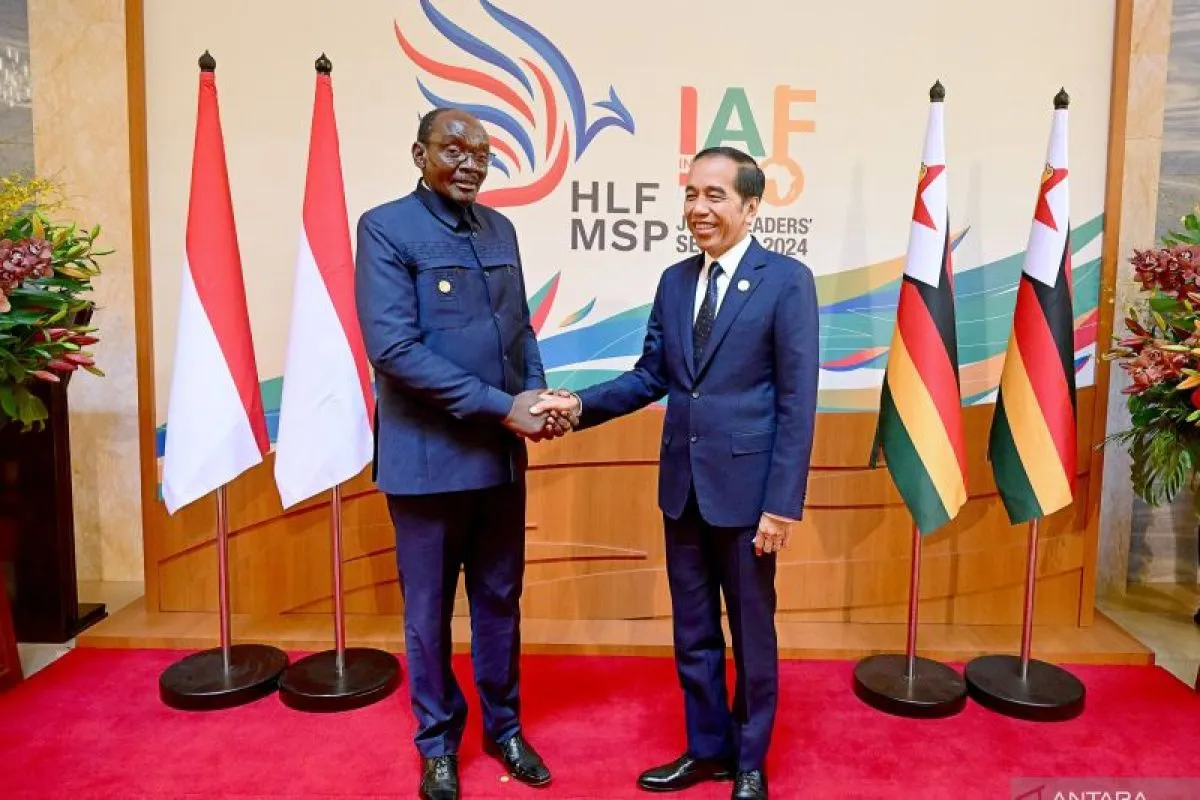Badung, Bali ( WNAM MONITORING): Its dream to be a prominent player in the global electric vehicle (EV) ecosystem has prompted Indonesia to take greater notice of mineral-rich Africa, particularly its reserves of lithium, the primary component of EV batteries.
Realizing the value of lithium for the EV industry, Indonesia has expressed great interest in tapping the abundant lithium reserves that Africa has at its disposal.
At a press conference at the recent 2nd Indonesia-Africa Forum (IAF) in Bali, Director General of Asia-Pacific and Africa at the Foreign Affairs Ministry Abdul Kadir Jailani said that state-run mining firm MIND ID has been cooperating with Tanzania in lithium mining.
To have a greater say in the EV battery global supply chain, Indonesia requires more minerals than nickel, which it has in abundance, he explained.
Indonesia is aware that some countries in Africa are storing other critical minerals that could help make its dream come true, he added.
In this context, President Joko Widodo (Jokowi) explored the potential for cooperation in lithium mining with Zimbabwe during his meeting with Zimbabwean Vice President Kembo Dugish Campbell Muleya Mohadi on the sidelines of the IAF.
Mohadi claimed that his homeland has the second-largest lithium deposits in the world.
During the meeting, President Widodo informed that he will instruct Minister of Energy and Natural Resources Bahlil Lahadalia to speed up the drafting of a memorandum of understanding that will serve as the foundation for the mineral cooperation.
Indonesia is attempting to let the promising chance to move one step closer to realizing its ambition to be a global EV battery giant.
President Widodo’s administration believes that by assuming the role of an EV battery hub, Indonesia will be able to stand strong in the global transition from fossil-based energy to new and renewable energy.
Help from Zimbabwe
Not only did Zimbabwe welcome Indonesia’s invitation for cooperation, the landlocked African country also invited Indonesian representatives to see its potential themselves.
During the Leaders’ Talk session at the IAF, Vice President Mohadi conveyed Zimbabwe’s openness to partner with Indonesia in the mining sector for mutual benefit.
He said that Zimbabwe regards Indonesia as a role model in the mining sector, while highlighting the Southeast Asian country’s intensive push for the downstreaming of its minerals.
Indonesia’s mineral downstreaming policy has inspired many African nations. Its success in pushing up the selling value of its nickel has prompted Zimbabwe to take similar measures for lithium in the hopes of generating more profits from exporting the critical mineral.
It is worth noting here that the mining sector has been the backbone of Zimbabwe’s economic growth. Exports of mining products contribute about 60 percent to the Southeast African country’s revenue.
Taking note of these aspects, Mohadi said his country is all set to forge lithium mining cooperation with Indonesia based on the principle of equality and the shared goal of building a solid ecosystem for the EV battery industry.
Maritime Affairs and Investment Coordinating Minister Luhut Binsar Pandjaitan, on his part, sought to instill optimism among African countries.
“Indonesia’s success is within reach of African nations,” he said while referring to his country’s mineral downstreaming initiative.
In addition to being home to the largest nickel deposits, Indonesia has the second-largest tin reserves in the world and is the third-largest bauxite and copper producer.
Pandjaitan likened Indonesia’s assistance to African nations in downstreaming their lithium wealth to fitting a piece of the puzzle in the archipelago’s grand design for the development of the EV battery industry landscape.
With Indonesia and Zimbabwe identifying common interests, the next step is the signing of a memorandum of understanding.
The Indonesian minister stressed that their cooperation would be egalitarian.
“We are all equal. Let us work side by side in the spirit of the Global South,” he said.
Market potential
While pursuing cooperation, Indonesia’s sights are set beyond Africa’s vast lithium reserves: It has also noticed the profitable African markets and the continent’s projected population boom.
According to Foreign Affairs Deputy Minister Pahala Mansury, the total African population is currently pegged at 1.4 billion, and it is expected to grow.
The enormous population of Africa offers Indonesia the opportunity to diversify its export targets by penetrating non-traditional markets in the continent.
That way, Indonesia will not only get to expand its export reach, but also gain new sources of commodities and investment cooperation opportunities.
According to the African Development Bank, the continent’s economic growth rate stood at 3.2 percent in 2023, and it is estimated to reach 3.8 percent this year.
It would not bode well for Indonesia to downplay or ignore the opportunities Africa has to offer. With the countries in the continent expressing their willingness to welcome Indonesia, the door to fulfilling its dream is wide open.
It is time for Indonesia to seize the Africa opportunity and fulfill its EV hub ambitions.


